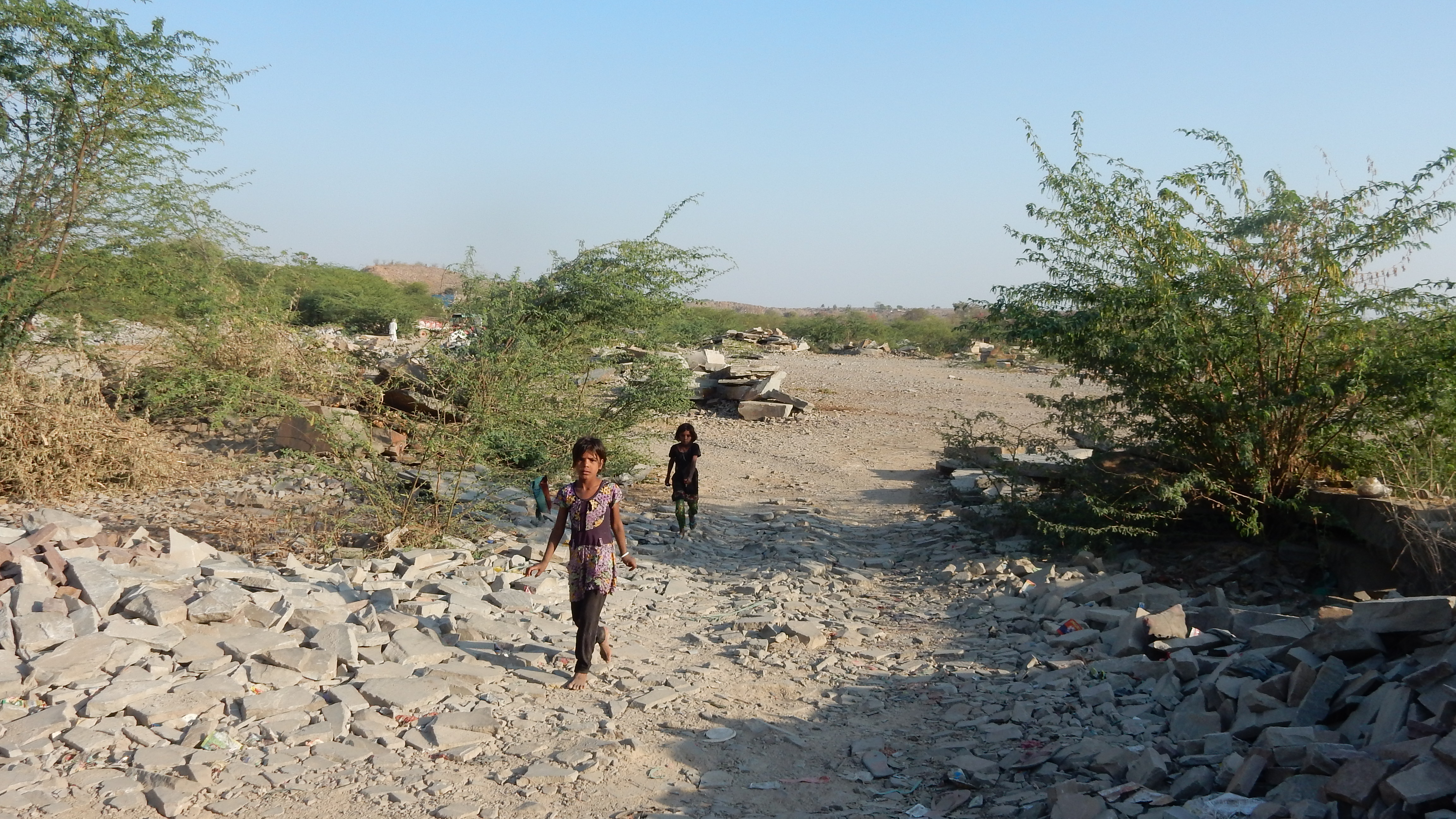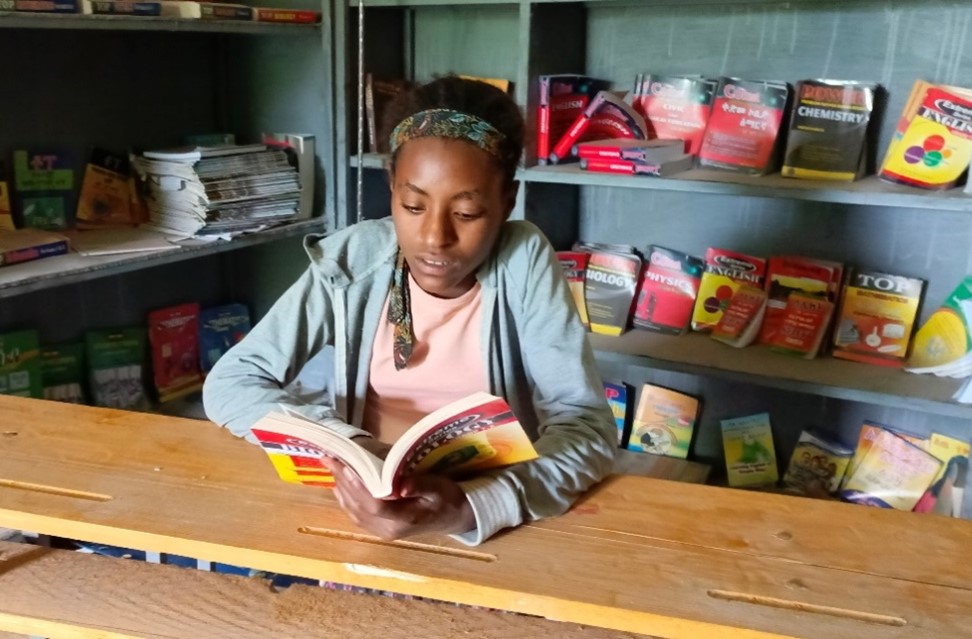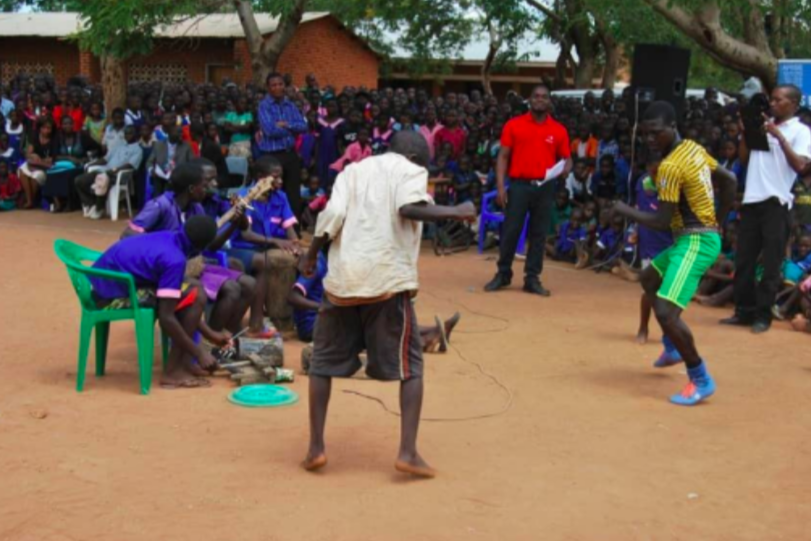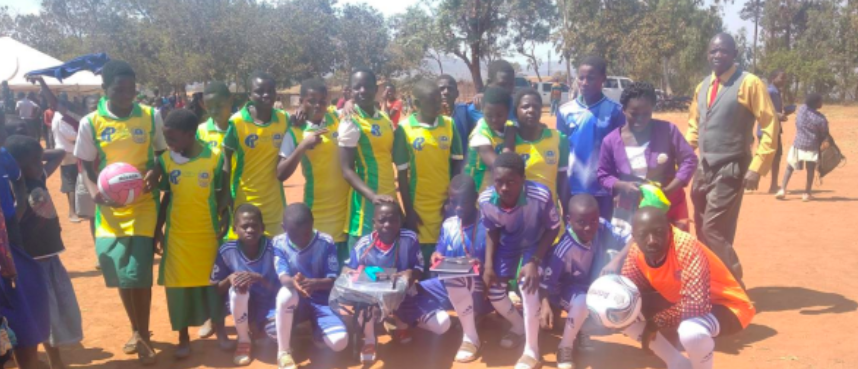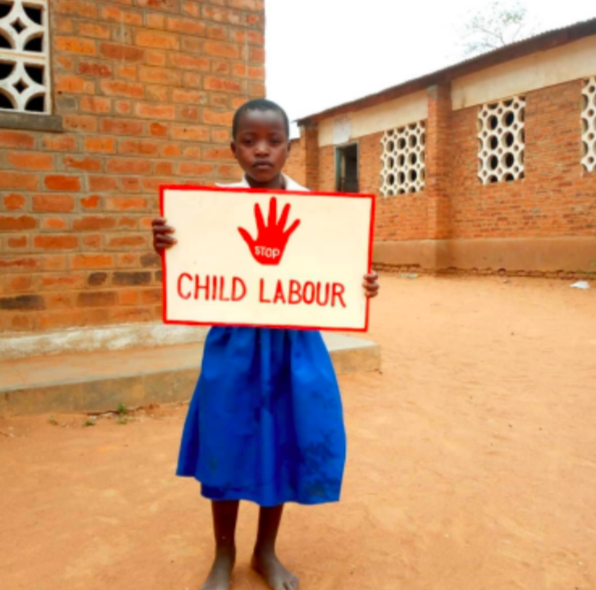Sandstone and granite are used for paving public spaces like streets and squares and for tiling walls and floors in public buildings like office blocks, train stations and airports. This makes public authorities important consumers of natural stone. Despite sustainable procurement policies, governments often opt for the cheapest stone, not taking into account human rights and environmental impacts in production countries.
Child labour and modern slavery in the natural stone industry
China and India are the largest and second largest producers of natural stone worldwide. Research into labour conditions in these countries show adverse human rights impacts, especially in quarries. In a recent study into South Indian granite quarries, ICN found that 10% of stone quarry labourers were children, 50-60% of the labourers were bonded to quarries through debts with high interests and 90% of labourers lacked a formal labour contract. Child labour is an even larger concern in cobble making and crushing waste stone into blue metal chips. Other concerns in both India and China are excessive working hours and health and safety. Working without protective equipment, many natural stone labourers suffer from silicosis, an incurable lung disease caused by exposure to silica dust, and die young.
Sustainable public procurement in the Netherlands
Each year, Dutch government agencies spend more than EUR 60 billion on goods and services. In 2005, goals were set for sustainable public procurement for the first time. A Parliamentary motion was adopted to ‘include sustainability as an important criterion in 100% of government procurements and investments by no later than 2010’. While initial focus was on criteria for environmental impact, social criteria (‘social conditions’) were later included in the Dutch public procurement policy.
Since 2013, ‘social conditions’ must be included in all government tenders above the European thresholds for supplies and services (€209,000 and €135,000 respectively for central Government) and public works (€5,225,000). The social conditions are introduced as a contract performance clause, and not as criteria to select or award a supplier, and they are divided into ‘generic’ and ‘additional’ social conditions. The ‘generic’ conditions apply to all product groups and are based on the ILO’s Core Labour Standards. ‘Additional’ social conditions, including working hours, health and safety in the workplace and adequate wages are applicable for a few specific product groups: coffee and tea, cocoa, textiles and flowers. For these product groups various certification schemes have been developed which are recognized by the Dutch government.
Suppliers can comply with the social conditions by following one of the following three ‘regimes’: 1) Participating in an approved supply chain initiative; 2) Making a declaration that no risk of violations of the social conditions is foreseen; or 3) Making a ‘reasonable effort’ to ensure that the social conditions are respected. To support procurers in implementing the social conditions, a number of tools have been developed, for example, The Manual for social conditions; Factsheet reasonable effort; CSR risk check and Toolkit for Child-Labour-Free Procurement.
Social conditions rarely applied
In 2014, the Dutch NGO SOMO reviewed the application of the social conditions in 25 public tenders for purchasing natural stone, phones, workwear and coffee. It found that in practice, the social conditions were rarely applied by public authorities. Only in 3 of the 25 tenders were the social conditions explicitly mentioned. In 15 tenders respect for international labour standards was included in tender specifications, but not addressed in line with the rules and guidelines of the sustainable procurement policy.
An evaluation in 2014 on behalf of the Dutch Government showed similar findings. Social conditions have had a meagre effect: their implementation is limited to paper-work in the first four stages of the purchasing process (preparation, specification, selection and contracting) but rarely followed-up in the implementation and after-care stages. Furthermore, the social conditions are not fully in line with the OECD Guidelines for Multinational Enterprises as the requirement to perform human rights due diligence only applies when a supplier chooses regime 3, which is seldom the case. Where suppliers have doubts about selecting a regime, they tend to choose regime 2 over regime 3, to avoid the requirement of making a ‘reasonable effort’. Also procurers almost never question suppliers’ regime selection, making it even more tempting for suppliers to choose regime 2. To address these shortcomings, the evaluation recommended the uniform application of the social conditions; monitoring of the application of social conditions in all stages of the procurement process; to switch to a single regime with a due diligence requirement; and aligning the ‘social conditions’ with the OECD Guidelines for Multinational Enterprises.
Status quo of sustainable public procurement in the Netherlands
In September 2015, a new Action Plan on Sustainable Public Procurement 2015 -2020 was sent to the Dutch Parliament. According to this Plan, recommendations based on the evaluation mentioned above will be tested through pilot tenders. The pilots should have been evaluated in November 2015 after which a decision would be made by the government on how to respond. Information about the pilots and its evaluation is not publicly available. Currently, central government procurement policies are being revised.
Public procurement of natural stone
According to stone-importing companies who are part of the Responsible Stone Program of TFT, opportunities are being missed to refer to the social conditions at the design stage with architects as well as the award stage, where natural stone is part of larger tenders for construction or renovation works, and in subcontracting situations. This leads many to conclude that while the government is promoting sustainable business in various ways, for example, via The Sustainable Trade Initiative and Transparency benchmark, public authorities do not seem yet to be prepared to pay a higher price for sustainable products. As long as price remains determinative in awarding contracts, the potential of public procurement as an instrument to stimulate socially responsible business in the natural stone sector remains largely unused.
Another observation by suppliers is that the actual efforts of companies on human rights due diligence and remediation should be taken into account. Unless this is the case, a supplier can use European stone (e.g. granite sourced from Portugal or Norway) for contracts where the social conditions are applied, while sourcing cheap natural stone from India and China for other customers without taking any responsibility for adverse human rights impacts occurring in the lower tiers of their supply chain.
Public procurement can only be effective in encouraging sustainable natural stone production if companies with proven records on conducting human rights due diligence and implementing social and environmental standards based on the OECD Guidelines are given preference in the award or selection stage of the procurement process.
Room for optimism?
In a 2014 CSR risk assessment commissioned by the Dutch government, natural stone was considered one of the products associated with a high risk of adverse human rights impacts. This report formed the basis for the so-called International Corporate Social Responsibility (ICSR) covenants, a new policy instrument of the Dutch government, to combat human rights abuses and adverse environmental impacts in supply chains. The aim of these covenants is ‘voluntarily binding agreements’ between the government, business and stakeholders to structurally address human rights risks in supply chains. So far only one covenant has been signed, in the garment sector.
For the natural stone sector, the process to come to a ICSR covenant has just started. Parties included in this process are the Dutch government, business associations for the natural stone and building sector, individual natural stone companies, NGOs and trade unions. Socially responsible public procurement will be an important and probably even decisive topic in the negotiations as being the most important instrument for awarding companies’ efforts in improving labour conditions in their supply chain. The Dutch government, now presenting itself as a champion in the field of responsible business, is a firm believer in the “carrot” over the “stick” as a way to promote responsible business conduct. It can only maintain its credibility by making sure that natural stone companies who do take steps to address adverse human rights impacts are appropriately rewarded for this in the procurement context.
Text: Diewertje Heyl, Program Officer CSR, India Committee of the Netherlands (ICN), part of the Stop Child Labour coalition

